12 Cosmic Horror Films for Fans of Lovecraft and the Unknown
For fans of H.P. Lovecraft and cosmic horror, some films dive into the vast unknown, where the universe itself is indifferent and terrifying. These movies explore themes of cosmic dread, where human beings confront forces far beyond their understanding. From ancient, otherworldly entities to disturbing realities, these films capture the essence of Lovecraftian horror. Whether through unsettling atmospheres or mind-bending visuals, they leave viewers with a lingering sense of insignificance in a vast, uncaring universe.
This post may contain affiliate links, which helps keep this content free. Please read our disclosure for more info.
The Haunted Palace (1963)
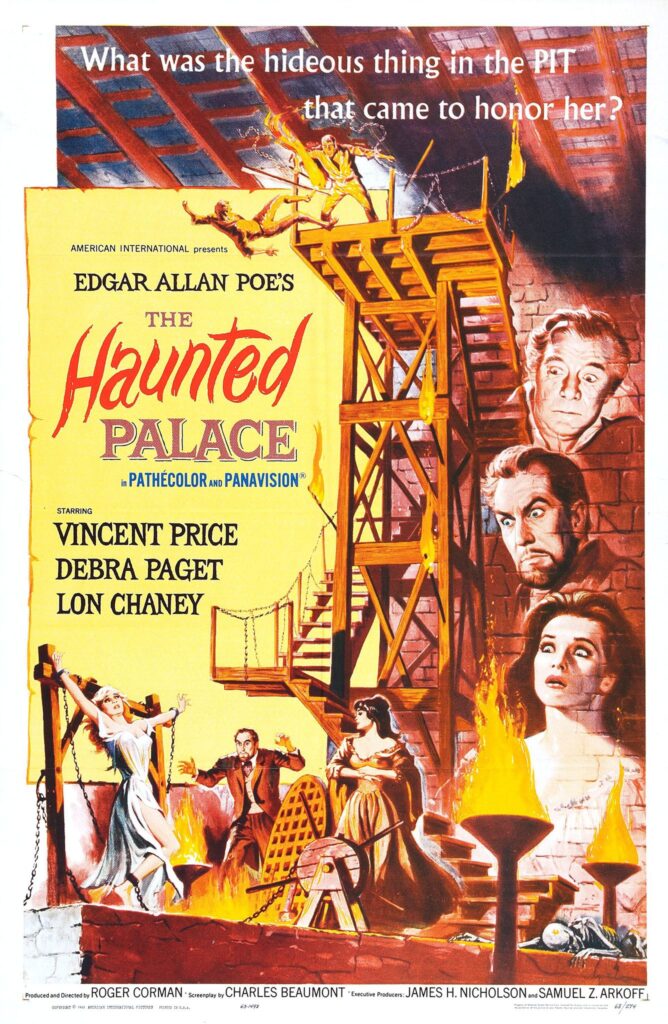
Roger Corman’s The Haunted Palace is a unique blend of Edgar Allan Poe and H.P. Lovecraft. Though it is loosely based on Poe’s work, the film includes a heavy dose of cosmic horror, particularly with its themes of ancient, malevolent forces beyond human comprehension. Set in a small, cursed town, the story follows a man who becomes possessed by a dark, otherworldly presence. The film’s eerie atmosphere and exploration of ancient evils that defy human understanding make it an excellent choice for fans of Lovecraftian horror.
The deep sense of dread and cosmic insignificance that pervades The Haunted Palace reflects the key elements of cosmic horror. The ancient curse that haunts the town’s inhabitants is not just a supernatural phenomenon; it is a reflection of humanity’s struggle against forces far beyond its control. This theme of humanity’s fragility in the face of the unknown makes it a fitting addition to the cosmic horror genre.
The Color Out of Space (2019)
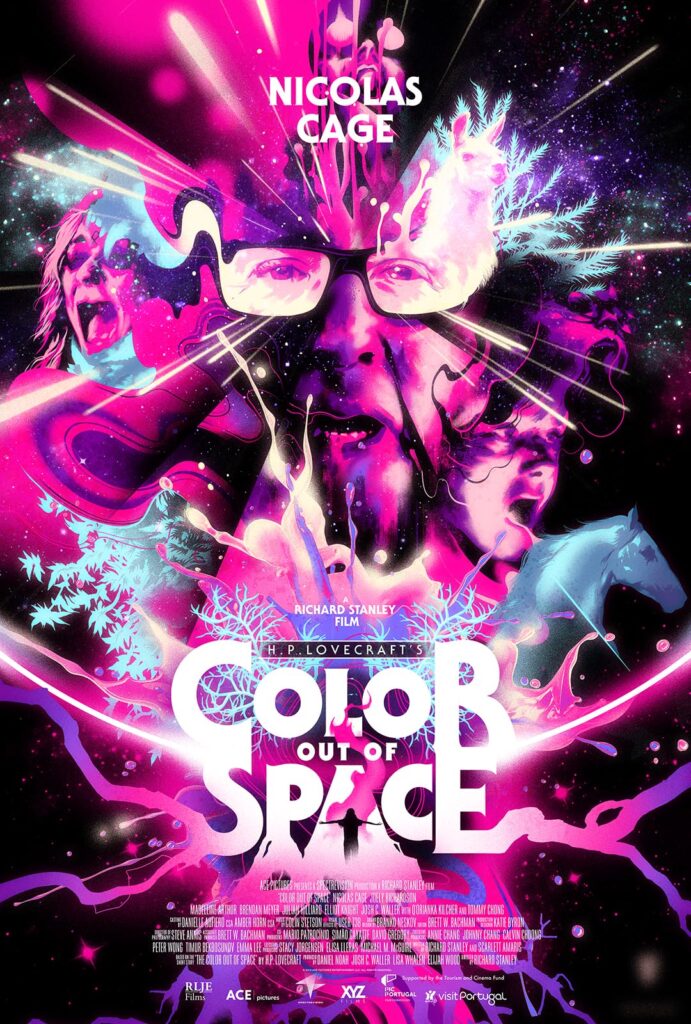
Richard Stanley’s The Color Out of Space is a modern, yet faithful adaptation of one of Lovecraft’s most chilling short stories. The film follows a family that begins to suffer bizarre and terrifying events after a meteorite crashes on their farm, releasing a strange, otherworldly color. The film’s slow-burning atmosphere and unsettling visuals perfectly capture the Lovecraftian notion that the universe is vast, indifferent, and incomprehensible.
What makes The Color Out of Space particularly compelling is its exploration of how human beings react when confronted with something entirely beyond their understanding. The film examines the terrifying unknown with an eerie portrayal of cosmic forces seeping into everyday life, transforming both the environment and the people within it. The chilling sense of helplessness and inevitability is a hallmark of cosmic horror.
The Thing (1982)
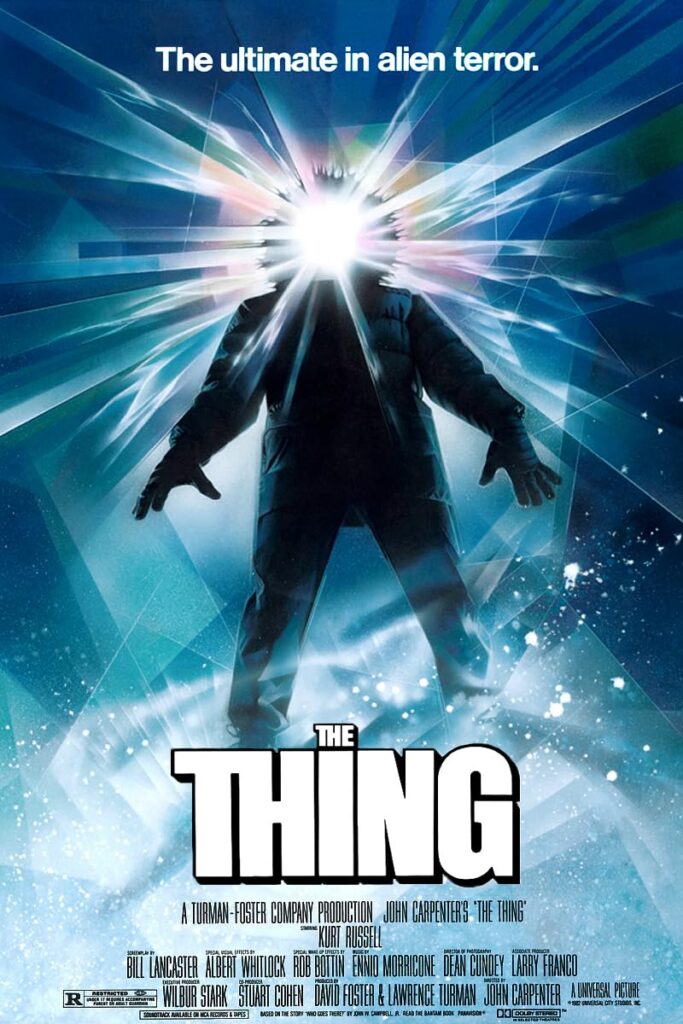
John Carpenter’s The Thing is often regarded as a masterpiece of cosmic horror. The film takes place in a remote Antarctic research station, where a shape-shifting alien entity begins to infect and transform the crew. The horror here isn’t just the monstrous creature but the existential terror of being in a situation where trust is impossible, and survival is uncertain. The crew is forced to confront a terrifying unknown that challenges their very understanding of life.
The alien entity in The Thing is a perfect embodiment of cosmic horror. It is unknowable, unstoppable, and beyond human comprehension. The isolation and paranoia that run throughout the film are amplified by the crew’s inability to fully grasp the nature of the creature, embodying the Lovecraftian idea that humans are insignificant in the grand scheme of the cosmos.
Event Horizon (1997)
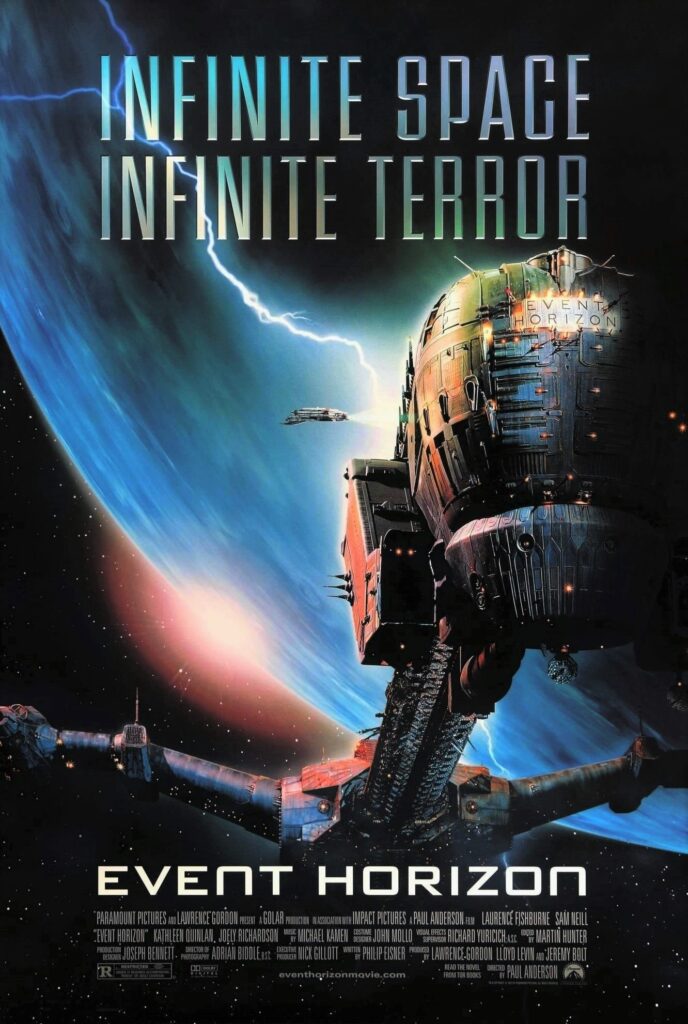
Event Horizon combines the elements of space exploration and supernatural horror, creating a chilling atmosphere of cosmic dread. The film follows a rescue mission to a spaceship that disappeared into a black hole and returned with something horrifying on board. As the crew of the rescue ship discovers, the event horizon, the point of no return, reveals a terrifying otherworldly force that defies human understanding.
The film taps into the theme of cosmic horror by portraying the vast emptiness of space as a conduit for malevolent forces. The alien entity at the heart of the film does not just attack the crew physically, but psychologically, breaking down their perceptions of reality. The horrifying unknown lurking beyond the stars is an ever-present force that the crew can neither understand nor escape, making Event Horizon a quintessential cosmic horror film.
Annihilation (2018)
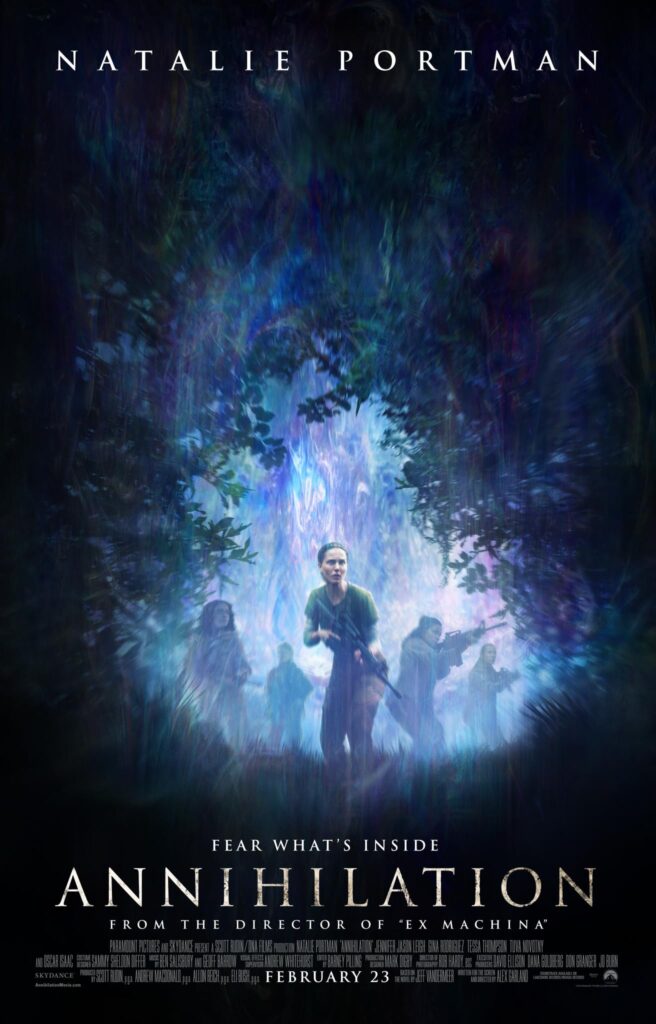
Alex Garland’s Annihilation is a haunting exploration of the unknown, based on Jeff VanderMeer’s novel. The film follows a group of scientists who venture into a mysterious area known as “The Shimmer,” where the laws of nature appear to break down. As they explore this strange phenomenon, they encounter bizarre, otherworldly creatures and a mind-altering force that warps their understanding of reality. The film’s complex themes of transformation, biology, and perception are rooted in cosmic horror.
The key Lovecraftian element in Annihilation is the Shimmer itself, a mysterious, cosmic force that defies explanation. The characters are subjected to experiences that suggest the universe is vast, indifferent, and filled with unknowable forces that can alter the very fabric of reality. The theme of humanity’s smallness in the face of such forces is central to the film’s unsettling atmosphere.
In the Mouth of Madness (1994)
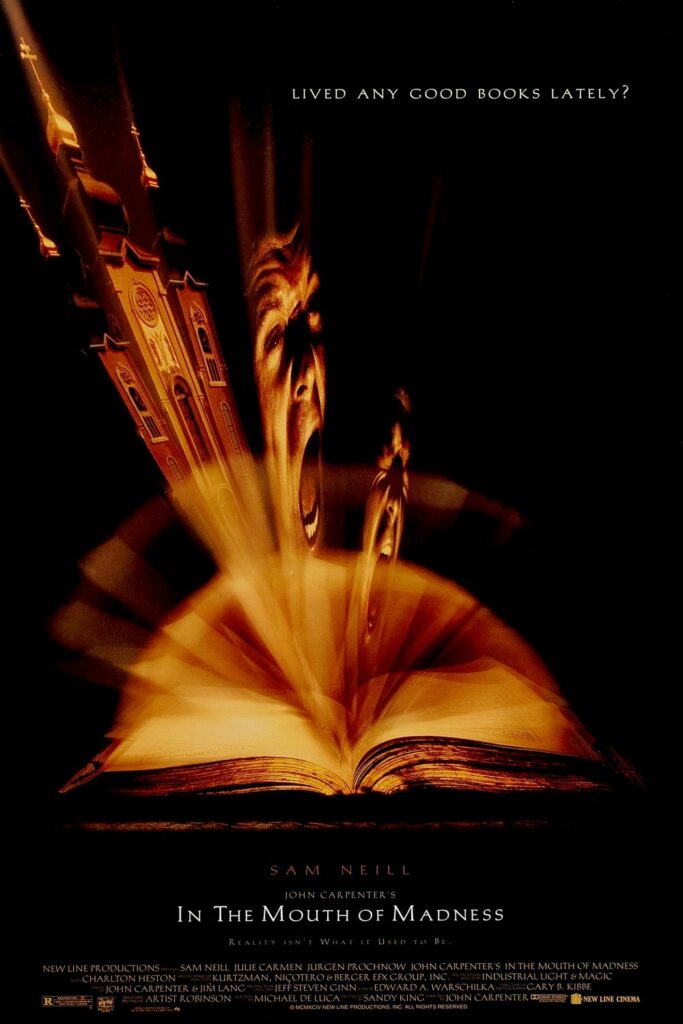
John Carpenter’s In the Mouth of Madness is a metafictional cosmic horror film that blends the world of fiction and reality. The story follows an investigator searching for a missing horror novelist whose work seems to be influencing reality itself. As the investigator delves deeper into the author’s world, he finds himself trapped in a nightmarish reality that mirrors the stories he’s read, where the boundaries between the known and the unknown begin to dissolve.
The film’s portrayal of reality unraveling due to the influence of an outside, cosmic force is a classic theme of Lovecraftian horror. The idea that literature can bend reality reflects the idea of humanity’s insignificance in the face of incomprehensible forces. In the Mouth of Madness plays with the notion that the universe is governed by chaos, and humans are powerless to understand or control the forces at work.
The Void (2016)
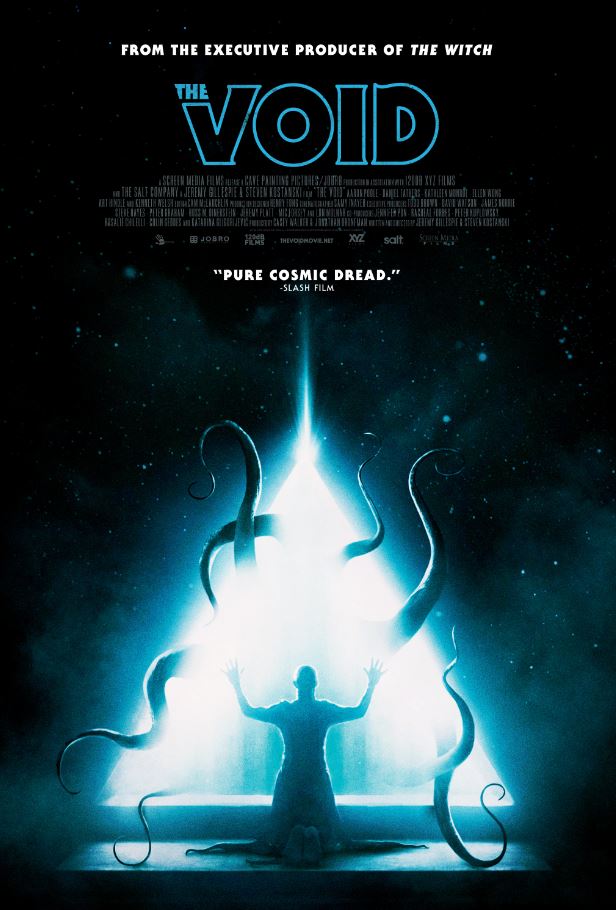
The Void is a supernatural horror film that takes place in a hospital where a group of people is trapped by a strange, otherworldly force. As they are hunted by nightmarish creatures and cultists, they discover that the horrors they face are linked to an ancient cosmic entity. The film is heavily influenced by the works of H.P. Lovecraft, particularly in its depiction of an unknowable force that shatters the characters’ understanding of reality.
The horror in The Void is rooted in the concept of cosmic horror. The hospital becomes a site where the boundaries between dimensions blur, and the characters face an existential threat that they cannot comprehend or defeat. The grotesque monsters and supernatural events represent the terrifying unknown, which is a recurring theme in Lovecraft’s work.
The Mist (2007)
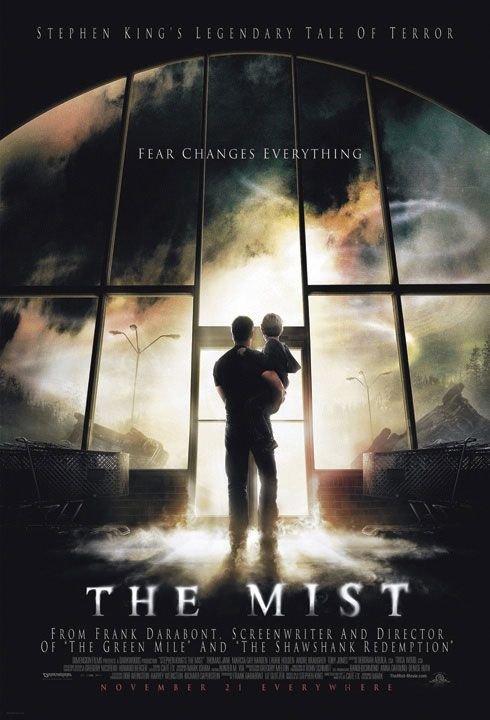
Frank Darabont’s adaptation of Stephen King’s novella The Mist perfectly captures the essence of cosmic horror. When a strange mist envelops a small town, the people trapped inside are forced to confront not only the terrifying creatures lurking within it but also the dark side of human nature. The film’s descent into chaos and madness echoes Lovecraft’s belief that humans are insignificant in the face of a vast, uncaring universe.
The mist itself represents the unknowable, and the creatures that emerge from it are manifestations of a cosmic terror that humanity cannot understand. The characters are powerless against the forces beyond the mist, much like Lovecraft’s protagonists who face horrors too vast to comprehend. The film’s tragic ending emphasizes the futility of trying to control or escape the overwhelming unknown.
The Lighthouse (2019)
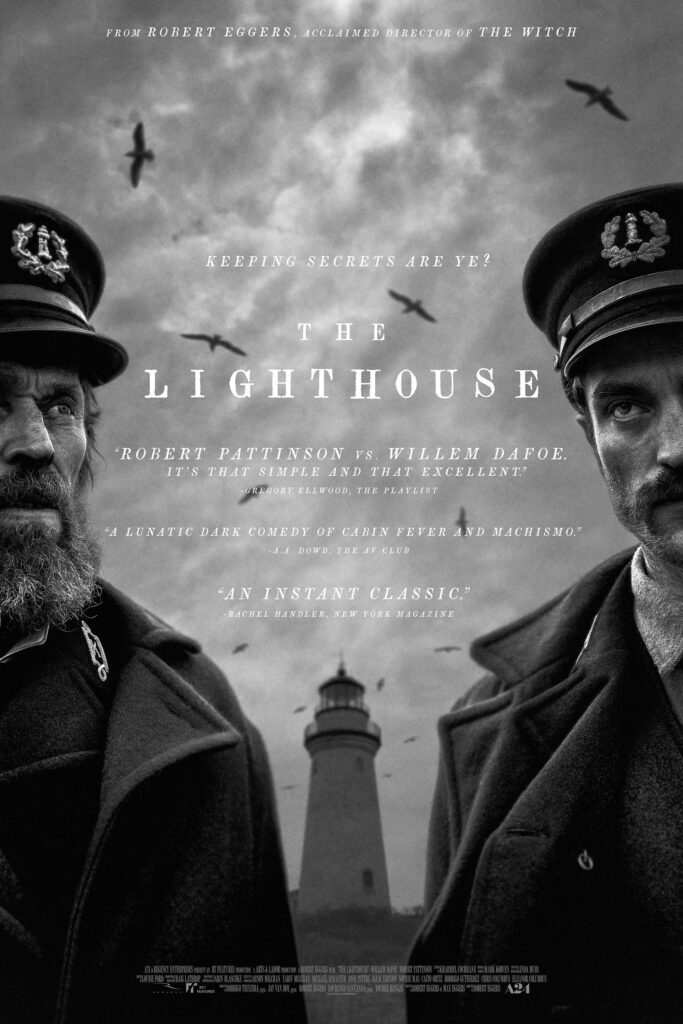
Robert Eggers’ The Lighthouse is a psychological and cosmic horror film that delves into the minds of two lighthouse keepers stranded on a remote island. As they descend into madness, they are haunted by strange visions and inexplicable phenomena, blurring the line between reality and delusion. The film’s isolated setting and oppressive atmosphere evoke the feeling of confronting the vast unknown.
The cosmic horror elements in The Lighthouse are deeply tied to the idea of isolation and the fragility of the human mind when faced with incomprehensible forces. The mysterious presence in the lighthouse, which seems to have an almost godlike power, is an embodiment of the cosmic terror that is central to Lovecraft’s work. The film’s ambiguous ending leaves the viewer with the sense that the true horror is not fully understood or explained.
The Cabin in the Woods (2012)
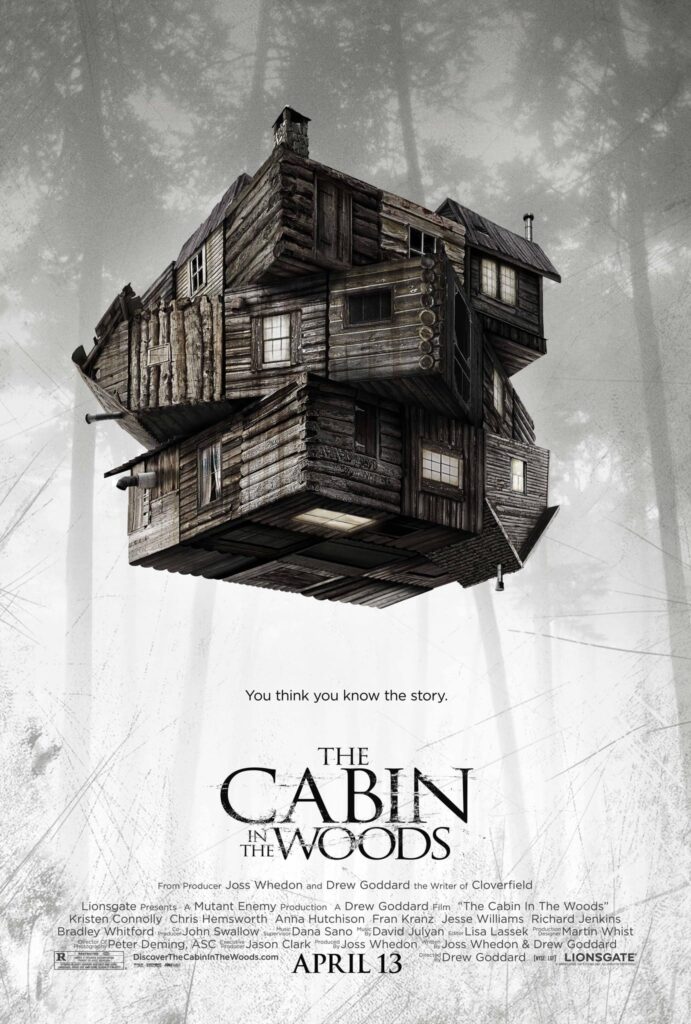
While The Cabin in the Woods is often thought of as a deconstruction of horror tropes, it also contains deep elements of cosmic horror. The film’s plot centers on a group of friends who visit a remote cabin, only to find themselves manipulated by a secret organization to unleash terrifying monsters. As the film progresses, it becomes clear that the horrors they face are controlled by ancient, godlike beings.
The film’s revelation that the characters are part of a ritual to appease ancient cosmic beings mirrors Lovecraft’s themes of cosmic indifference and the smallness of humanity. The monsters themselves, which are derived from various myths and nightmares, represent the chaotic, unknowable forces that rule over the universe. The film ultimately questions humanity’s role in a world governed by forces too vast and ancient to understand.
Possession (1981)
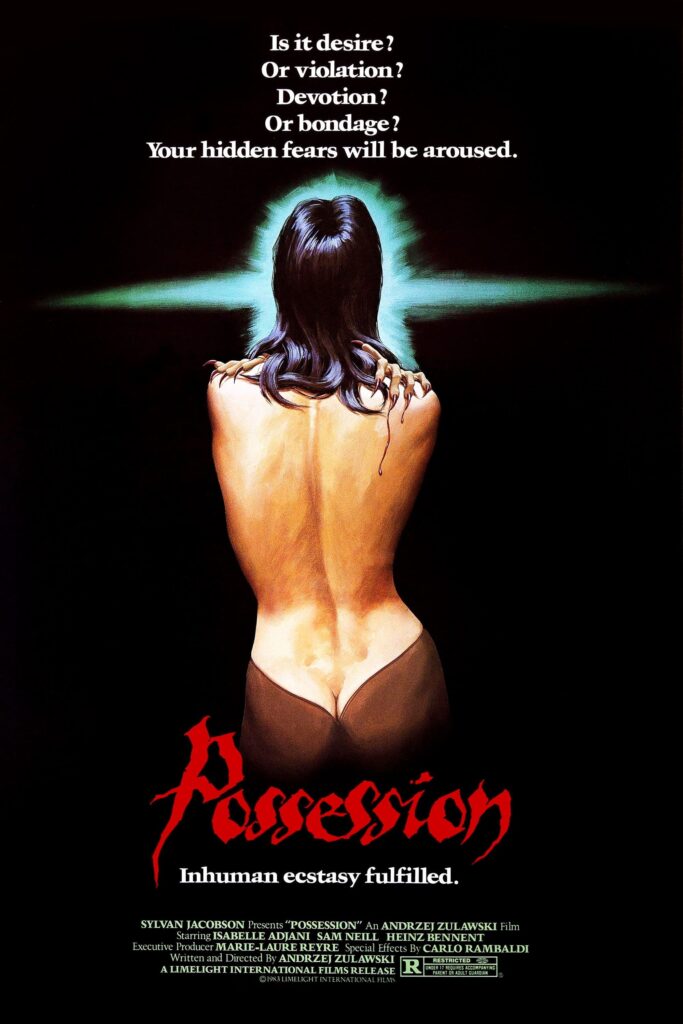
Andrzej Żuławski’s Possession is a deeply unsettling film that blends psychological horror with cosmic terror. It tells the story of a woman who becomes possessed by an alien entity, leading to a series of disturbing events. As her husband investigates the strange happenings, he uncovers a force beyond comprehension, one that challenges the very nature of reality.
The cosmic horror elements in Possession lie in the alien force that controls the woman, representing an unknown power that transcends human understanding. The entity’s motivations are never fully explained, emphasizing the horror of confronting something that cannot be understood. The film’s disturbing imagery and surreal narrative contribute to its eerie atmosphere of dread and cosmic uncertainty.
The Blackcoat’s Daughter (2015)
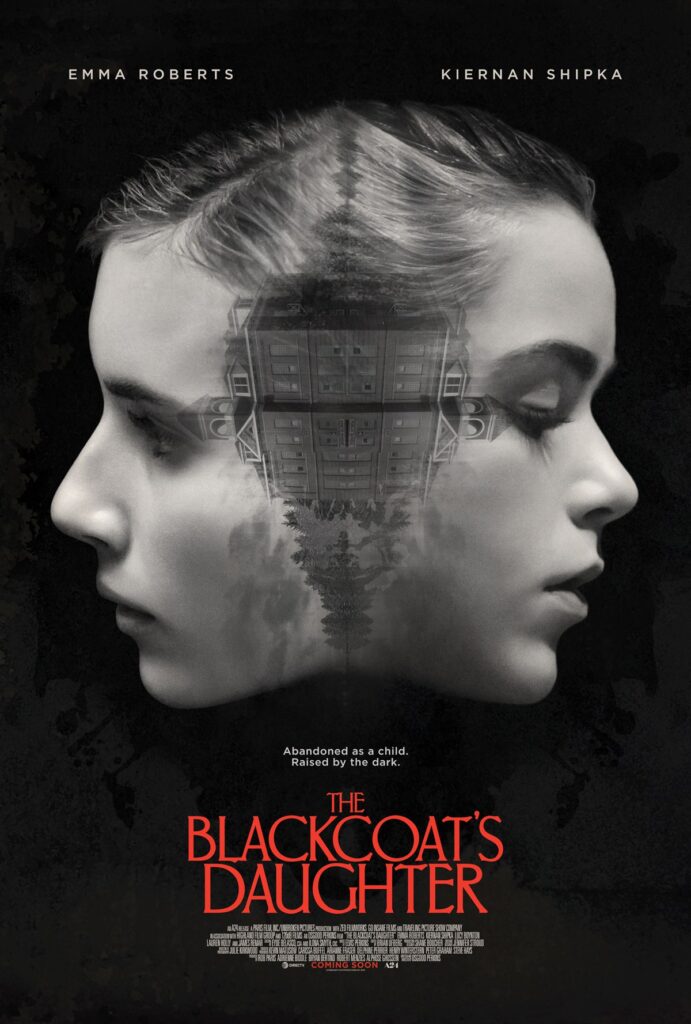
Oz Perkins’ The Blackcoat’s Daughter is a slow-burning psychological horror film that carries strong cosmic horror themes. The film follows two students at a boarding school who are left behind during winter break, only to encounter sinister forces that seem beyond human control. As the film unravels, it becomes clear that the horror they face is linked to a darker, cosmic power.
The entity that haunts the school is never fully explained, adding to the sense of cosmic dread that permeates the film. The characters’ attempts to understand and escape the forces that torment them are futile, highlighting the Lovecraftian theme of humanity’s insignificance in the face of unknown horrors. The slow pacing and ominous atmosphere make this film a haunting exploration of cosmic terror.
This article originally appeared on Avocadu.
